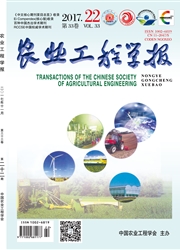

 中文摘要:
中文摘要:
伴随着生物质能的快速发展,生物质能产业可持续性问题在全球范围内也日益引起高度重视。该文概述了国际上主要的生物质能可持续政策和标准,着重对其准则和指标进行了系统梳理,并就温室气体排放这一核心指标及不确定性加以分析。阐述了生物质能可持续准则和指标对生物质能产业政策的支持作用,并在此基础上提出了政策建议。中国应在《可再生能源法》和《生物质能发展规划》中明确提出可持续性要求,生物质能产业政策应与可持续性要求挂钩,可持续准则和指标的选取应兼具科学性和可操作性,应明确(greenhouse gas,GHG)排放核算方法学,并对最低排放要求的设置进行充分论证,同时,优先在航空生物燃料等领域构建生物质能可持续标准。
 英文摘要:
英文摘要:
With the rapid development of bioenergy,the sustainability issue of bioenergy has aroused more and more attention globally.China is also highly concerned about the sustainable development of bioenergy.But,there are only sustainable principles emphasized by government with no specific criteria and indicators,e.g.,avoiding bioenergy competition for food crops and land.Therefore,it is necessary to establish systematic criteria and indicators to provide clear and executable guidelines for the sustainable development of bioenergy in China.Several regions in the world have promulgated regulation framework or certification standard to assure the sustainable production and utilization of bioenergy.Also some international institutions,such as Global Bioenergy Partnership(GBEP)and International Organization for Standardization(ISO),have published voluntary sustainable standard for decision makers.Therefore,to learn the global experience is a good option to promote the establishment of sustainable requirements in China.The typical sustainable bioenergy initiatives in the world are introduced in the paper,including regulation frameworks,certification standards and voluntary standards without threshold.The key criteria and indicators are reviewed.It is found that although the principles of sustainable development are the same for diverse initiatives,their focuses on environmental,social or economic aspects are different due to their different starting points and goals.The importance of involving greenhouse gas(GHG)emission as a key indicator is analyzed,and the challenges on how to quantify GHG emission are also discussed,such as,the allocation of byproduct’s emission and the impact of direct land use changeindirect land use change.The requirements on GHG emission reduction of bioenergy compared to fossil fuel are also reviewed.The supporting role of bioenergy sustainability initiatives for the bioenergy industrial policies is elaborated based on the practices of the EU(European Union)and the United States.A
 同期刊论文项目
同期刊论文项目
 同项目期刊论文
同项目期刊论文
 期刊信息
期刊信息
